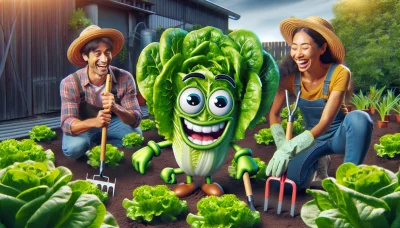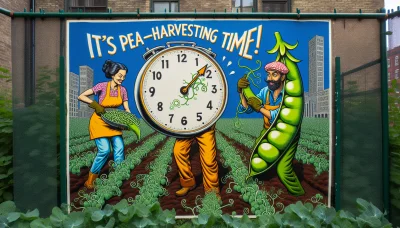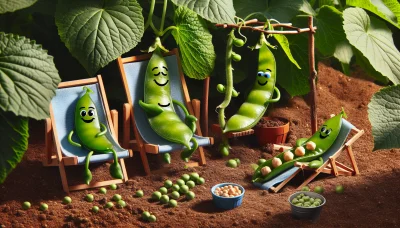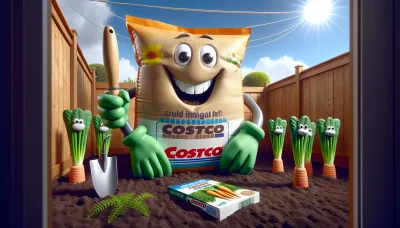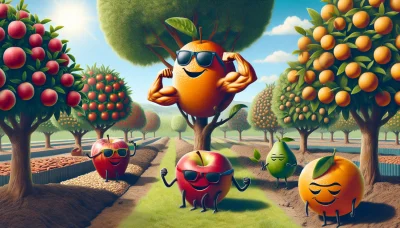How to eat a guava Quiz
Test Your Knowledge
Question of
How to Eat a Guava: A Gardener's Guide
Guavas are not only a delicious tropical fruit but also a powerhouse of nutrition, offering a plethora of health benefits. Rich in dietary fiber, vitamins C and A, potassium, and antioxidants, guavas can play a significant role in improving digestion, boosting the immune system, and even aiding in weight loss. For gardeners, growing guavas can be a rewarding endeavor as these trees are not only productive but also add a tropical aesthetic to the garden. The fruit's adaptability to different soil types and climates, along with its resistance to pests and diseases, makes it a favorable choice for both novice and experienced gardeners. Whether enjoyed fresh, juiced, or in culinary creations, guavas offer a unique taste and a multitude of nutritional benefits, making them a valuable addition to any garden or diet.
Selecting the Perfect Guava
When it comes to picking the perfect guava, whether from your garden or the market, there are three key factors to consider: color, texture, and smell. A ripe guava typically has a bright yellow to light green skin, though some varieties may exhibit a pink hue. The color should be uniform across the fruit, without any major blemishes or dark spots which can indicate overripeness or rot. In terms of texture, the fruit should yield slightly under gentle pressure, similar to a ripe avocado, indicating it's ready to eat. However, if it feels too soft or mushy, it might be past its prime. Lastly, a ripe guava emits a strong, sweet, and floral fragrance. The stronger the smell, the more likely it is to be ripe and flavorful. If you can't detect any scent, the fruit may still need time to ripen. By paying attention to these indicators, you can select the best guavas for your table.
Preparation and Cleaning
To ensure your guavas are ready for consumption, start by gently washing them under cold running water. Avoid using any detergents or soaps, as these can leave harmful residues. If you're concerned about pesticides or bacteria, consider soaking the guavas in a solution of water and baking soda for about 12-15 minutes, then rinse them thoroughly under cold water. After washing, pat the guavas dry with a clean towel. For those picking guavas fresh from the garden, it's important to wear gloves to protect your hands from any pests or thorns and to check each guava for ripeness before picking. A ripe guava will be slightly soft to the touch and have a fragrant aroma. Remember, handling your fresh produce with care not only ensures the best taste but also maximizes its health benefits.
Different Ways to Eat a Guava
- Eating them raw
- Making guava juice
- Incorporating them into recipes
- Creating guava jam or jelly
- Preparing guava smoothies
- Making guava pastries and desserts
- Adding them to salads for a tropical twist
- Using guava in savory dishes like sauces and marinades
- Dehydrating them for a chewy, sweet snack
- Freezing guava pieces for a cool treat
Guava Recipes for Gardeners
If you've got a bounty of guavas from your garden and are wondering what to do with them, you're in luck! We've compiled a few simple, delicious recipes that put guavas at the forefront of flavor. From refreshing guava smoothies to a rich, savory guava barbecue sauce, these recipes are designed to inspire you to use your home-grown produce in new and exciting ways. Let's turn those garden gems into culinary delights that everyone will love!
Storing Your Guavas
To extend the freshness of your guavas, it's essential to store them correctly. Fresh guavas can be kept at room temperature until they ripen. Once ripe, they should be placed in the refrigerator to slow down the ripening process and can last for about a week. If you have a large batch of guavas, consider using them to make jams or preserves, which can significantly extend their shelf life. For gardeners with an abundance of fruits, similar storage techniques can be applied. Most fruits ripen well at room temperature and then can be refrigerated to maintain freshness. Remember, some fruits like apples emit ethylene gas, which can speed up the ripening of other fruits nearby, so store them separately if possible.
The Health Benefits of Guavas
| Vitamin/Mineral | Health Benefits |
|---|---|
| Vitamin C | Boosts immunity, helps in the absorption of iron, and promotes healthy skin. |
| Vitamin A | Improves vision, supports bone health, and strengthens the immune system. |
| Fiber | Enhances digestive health and aids in maintaining a healthy weight. |
| Potassium | Regulates blood pressure, supports heart health, and improves muscle strength. |
| Magnesium | Helps with muscle relaxation, maintains nerve function, and supports the immune system. |
| Lycopene | Acts as a powerful antioxidant, reduces the risk of certain cancers, and protects skin from UV damage. |

